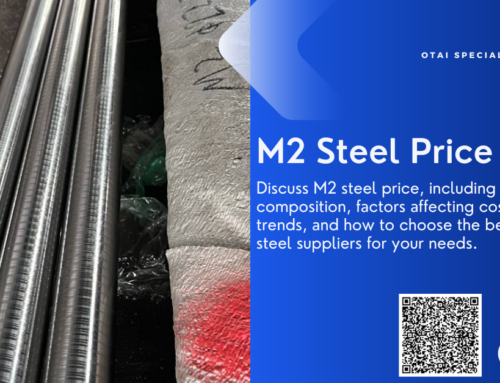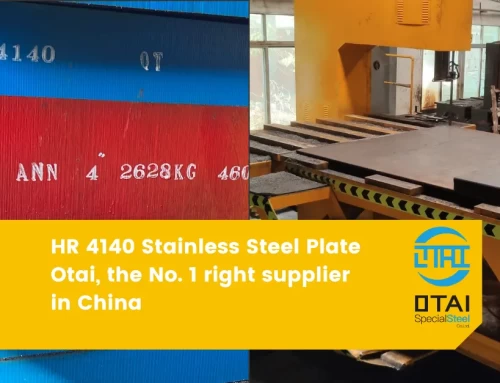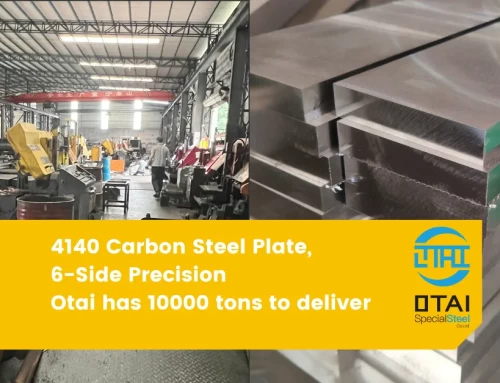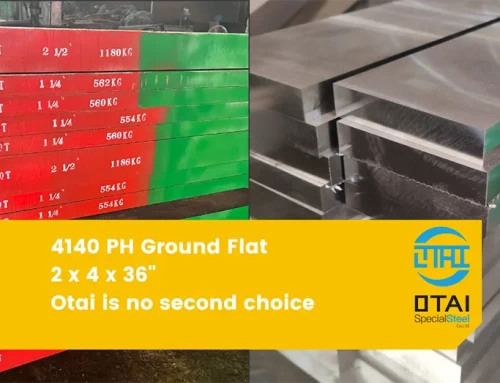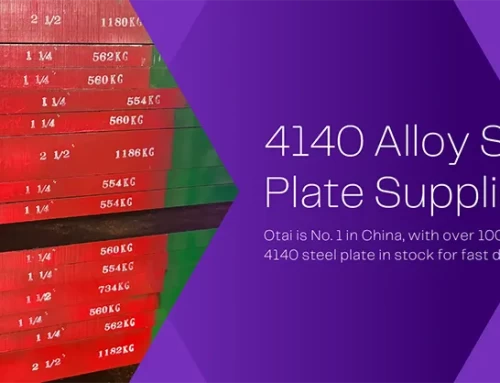A Comprehensive Guide to 4140 Alloy Flat Bar: Unveiling Its Properties, Applications, and Advantages
Welcome to our comprehensive guide on 4140 alloy steel flat bar, a highly versatile and sought-after alloy steel product. As a leading provider in the industry, we are dedicated to providing you with valuable information and helping you make informed decisions for your project requirements. In this article, we will delve into the properties, applications, and numerous benefits of 4140 flat bar. Let’s explore this exceptional material in detail.
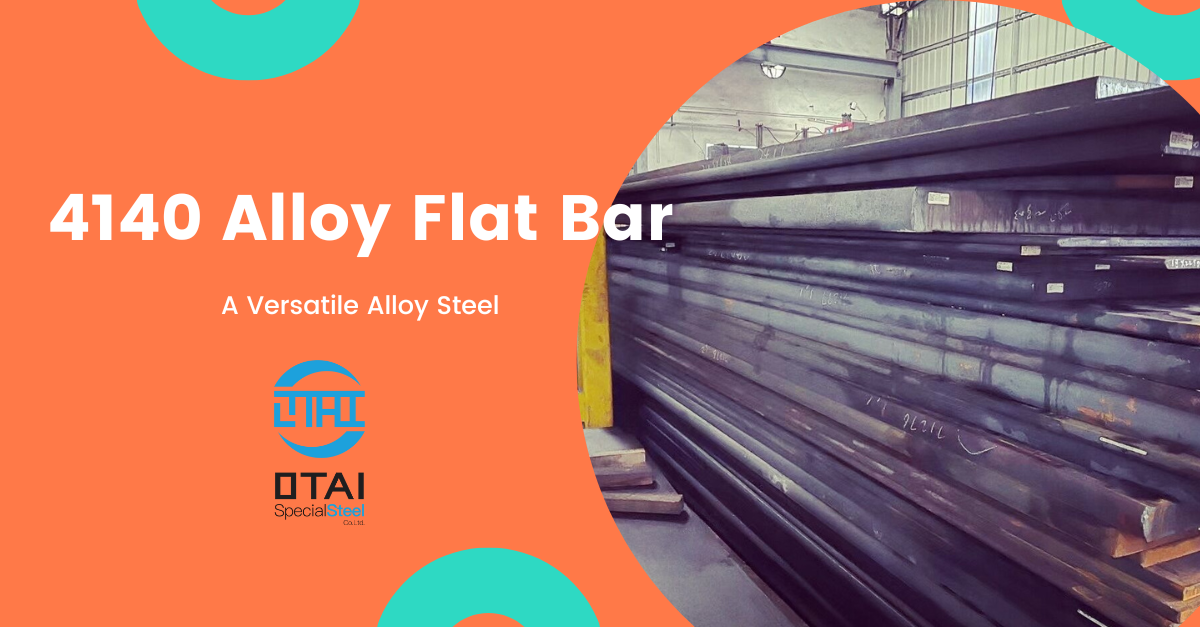
Understanding 4140 Flat Bar: Its Remarkable Properties and Composition
When it comes to 4140 alloy flat bar, we are dealing with a type of chromium-molybdenum (Cr-Mo) steel that is widely recognized for its outstanding strength, durability, and wear resistance. This material is incredibly versatile, making it a popular choice across various industries. With a nominal chromium content of 1% and a nominal molybdenum content of 0.40%, 4140 alloy flat bar strikes an excellent balance between essential elements.
Mechanical Properties of 4140 Alloy Flat: Tensile Strength, Yield Strength, and Hardness
The mechanical properties of 4140 flat play a crucial role in its exceptional performance. Its tensile strength typically ranges from 850 to 1000 MPa, showcasing impressive resistance to applied forces. This means that the material can withstand substantial loads without succumbing to deformation. Additionally, the yield strength of 4140 alloy steel flat bar falls within the range of 680 to 900 MPa, indicating its ability to resist deformation under load.
Another significant aspect of 4140 flat is its hardness. Through proper heat treatment, this material can achieve a hardness of approximately 22-25 HRC (Rockwell Hardness Scale). This level of hardness is particularly desirable for demanding applications where resistance to wear and durability are paramount.
Heat Treatment and Machinability: Enhancing Properties and Processing Ease
One of the key advantages of 4140 alloy steel plate is its excellent response to heat treatment, which allows for the optimization of its mechanical properties. Common heat treatment processes applied to 4140 alloy plate include quenching and tempering, which can enhance its hardness and toughness to meet specific application requirements.
In terms of machinability, 4140 flat bar steel can be readily processed using conventional methods. While it may be slightly more challenging to machine compared to carbon steels, it is important to utilize appropriate cutting tools and techniques to achieve optimal results.
Applications of 4140 Flat: Where Strength and Versatility Shine
4140 alloy flat bar finds extensive use in various industries where exceptional strength, versatility, and wear resistance are crucial. Let’s explore some key sectors and applications where the remarkable properties of alloy 4140 flat bar truly shine:
- Aerospace and Defense: Elevating Performance and Reliability
In the aerospace and defense sectors, the 4140 alloy steel plays a vital role in the manufacturing of crucial components. Whether it’s landing gear parts, structural elements, or fasteners, this material’s exceptional strength and reliability make it an ideal choice for applications subject to extreme conditions and rigorous demands.
- Automotive and Transportation: Empowering Performance and Durability
The automotive industry greatly benefits from the exceptional properties of 4140 alloy bar. It finds applications in critical components like crankshafts, axles, gears, and suspension systems. The high tensile strength and fatigue resistance of 4140 bar contribute to enhanced performance, durability, and safety of automotive parts.
- Oil and Gas: Conquering Harsh Environments
In the oil and gas industry, 4140 flat bar steel is highly valued for its remarkable ability to withstand harsh environments. It is extensively used in the production of drill collars, valves, and other components that require superior strength, toughness, and resistance to wear and fatigue. The 4140 steel alloy flat’s corrosion resistance and high-pressure performance make it a reliable choice for demanding oil and gas applications.
- Construction and Heavy Equipment: Building with Confidence
When it comes to construction and heavy equipment, the 4140 alloy flat bar is a top choice. It finds widespread use in the manufacturing of crankshafts, gears, shafts, and structural components. With its exceptional strength and durability, it ensures the reliability and longevity of construction projects and heavy machinery. Additionally, its heat-treatable nature allows for customization to meet specific project requirements.
- Customization and Availability: Tailoring to Your Needs
One of the significant advantages of the 4140 steel bar is its versatility and customization options. Its composition and heat-treatable nature enable manufacturers to modify its properties to suit specific project requirements. Whether you need higher hardness, improved toughness, or enhanced machinability, the 4140 bar flat can be tailored to meet your needs.
At Otai, we understand the importance of providing our customers with a wide range of options. We offer 4140 flat bar alloy steel materials in various sizes, thicknesses, and lengths, ensuring that you can find the perfect fit for your application. With our extensive inventory and efficient supply chain management, we are dedicated to meeting your demands promptly and reliably.
Advantages of 4140 Bar Alloy Steel: Why Choose It?
When considering materials for your project, it is essential to evaluate the advantages they offer. Here are some key benefits of the 4140 alloy steel material flat bar:
- Exceptional Strength and Toughness: Built to Withstand Challenges
The 4140 flat bar exhibits exceptional strength and toughness, making it ideal for applications that require high load-bearing capacity and resistance to impact and fatigue. Its robust mechanical properties ensure reliable performance, even in demanding conditions.
- Superior Wear and Abrasion Resistance: Enduring in Harsh Environments
Thanks to its composition and heat-treatable nature, the 4140 alloy flat bar demonstrates excellent resistance to wear and abrasion. This property is particularly valuable in applications where the material comes into contact with abrasive substances, such as in mining equipment and machinery parts.
- Versatility and Machinability: Tailored Solutions, Precise Results
The 4140 alloy flat offers versatility in terms of applications and machining capabilities. It can be readily machined, allowing for the creation of intricate and precise components. Additionally, its adaptability to heat treatment processes provides flexibility in achieving desired mechanical properties.
- Cost-Effective Solution: Efficiency Meets Affordability
Considering its exceptional properties and versatility, the 4140 alloy flat bar offers a cost-effective solution for many industries. Its long-lasting durability and high performance reduce the need for frequent replacements, ultimately lowering maintenance costs and increasing overall efficiency.
Conclusion: Elevate Your Projects with 4140 Alloy Flat Bar
In conclusion, the 4140 alloy steel stands as a highly valuable material in the realm of alloy steel products. Its exceptional properties, including strength, toughness, wear resistance, and machinability, make it a top choice for a wide range of industries. From aerospace and defense to automotive, oil and gas, construction, and heavy equipment, the 4140 flat alloy steel excels in diverse applications.
At Otai Special Steel, we take pride in offering top-quality 4140 alloy flat bars that meet the highest standards. Our commitment to providing excellent products, coupled with our expertise in the industry, ensures your satisfaction and success in your projects. Contact us today to discuss your requirements and discover how our alloy steel.

